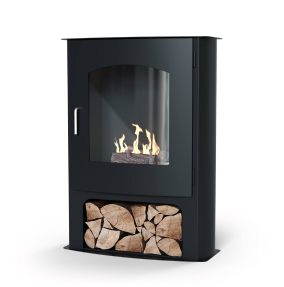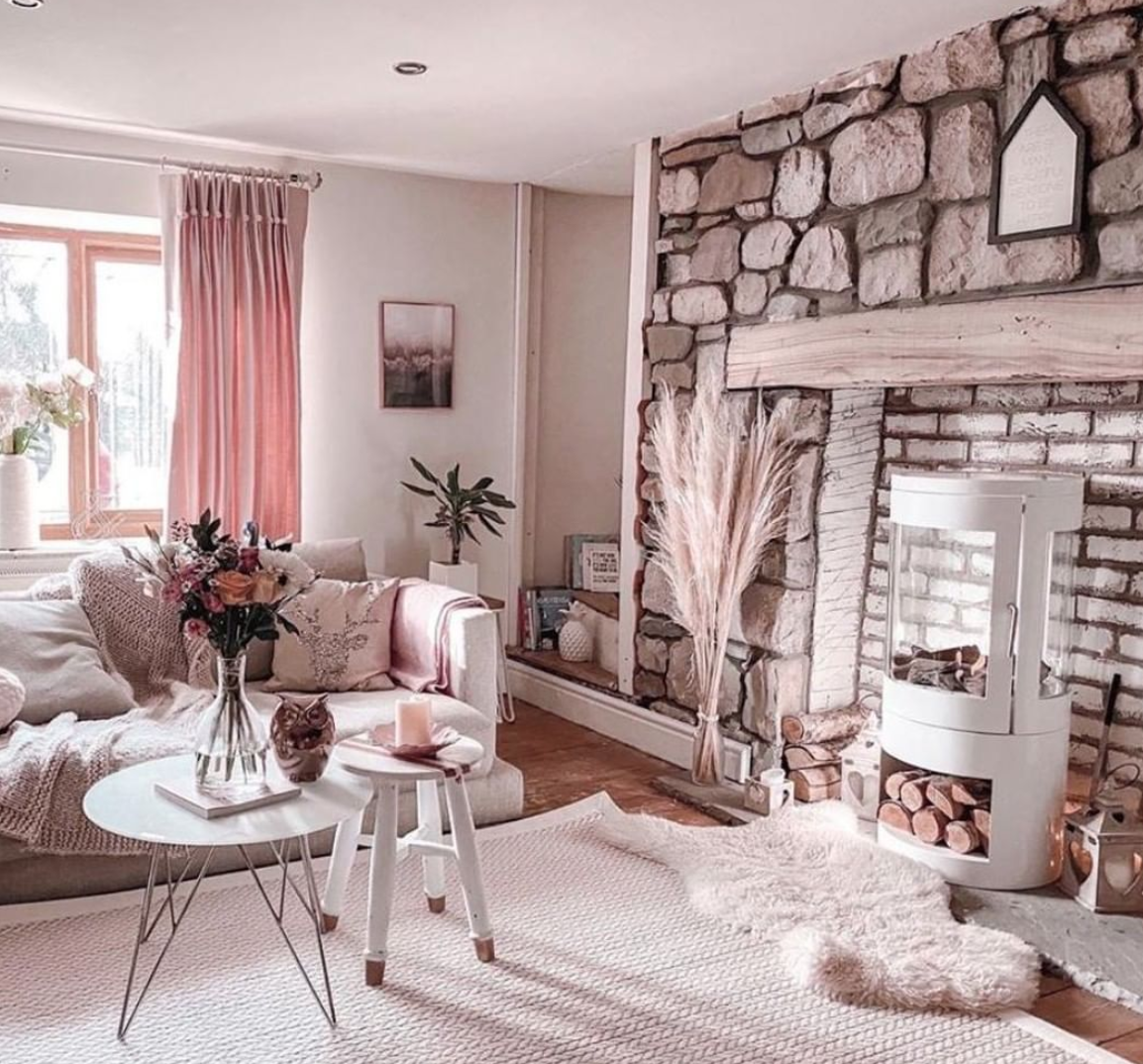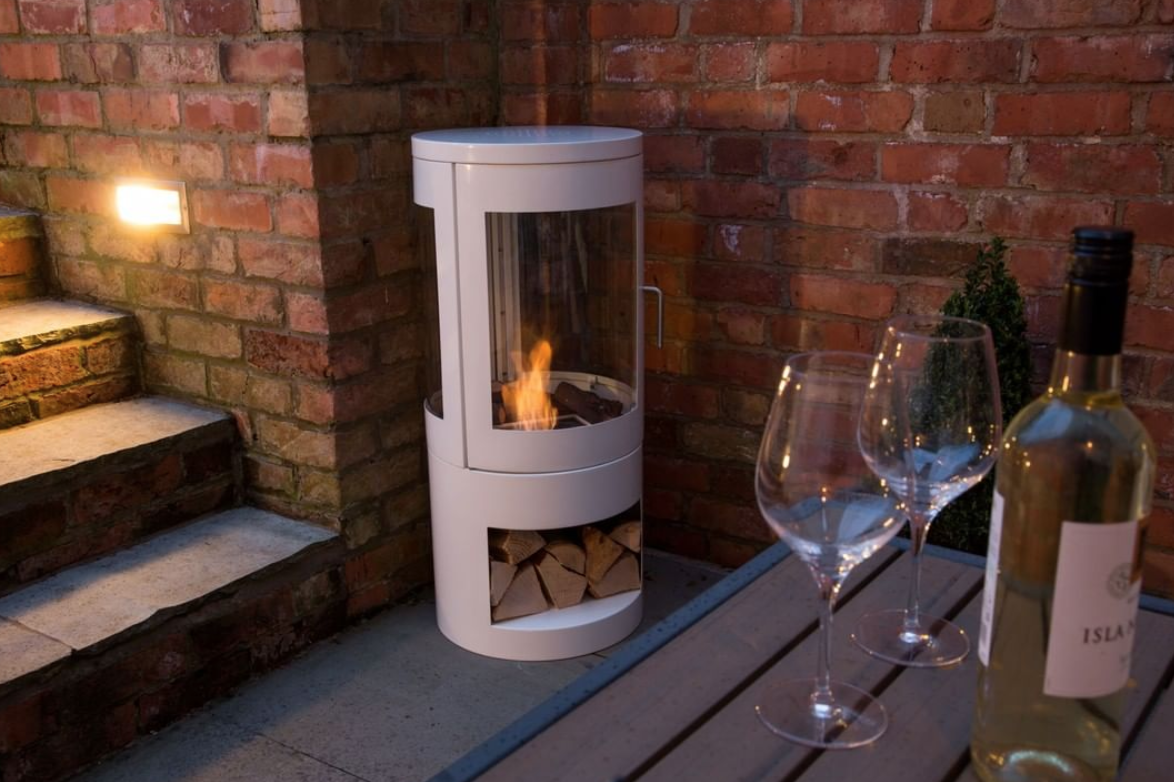
What is the best alternative to a wood burning fireplace?

10% off on our Bioethanol Fireplaces. Subscribe Today!

What is the best fireplace alternatives to wood burning stoves?
When you're looking for the best alternative to a wood burning fireplace, the Stow bioethanol fire is an ideal solution, creating the same pleasing style, but without the expense or hassle.
There's no doubt that a log burner fireplace provides plenty of warmth for any home. This is what makes it such a popular choice for people who enjoy the look and feel of an intense real flame in their home. In fact, statistics from the Stove Industry Alliance revealed that the number installed in the UK had hit the one-million-mark last year. [1]
However, owning a wood burner fireplace comes at a price - and not just the wood burner cost itself, which can be more than £1,000. [2]
Installation and maintenance can be expensive unlike bioethanol fires, spiralling to more than the cost of the actual wood burner.
Costs Comparison Chart: Wood Burning Fireplace Vs Bioethanol Fireplace

|
|
Wood Burning Fireplace |
Bioethanol Fireplace |
|
Purchase costs: |
A good quality wood burner can cost £700-£1,500, depending on the quality and features required. |
A high-quality bioethanol fireplace, such as those sold by Imaginfires.co.uk, can be bought for as little as £150, with prices going up to £700. |
|
Installation costs: |
• A wood burner installation cost can go up to £2,000. |
• A bioethanol fireplace has no assembly or fitting required, so the wood burner installation costs are zero. |
|
Running costs: |
• The cost of running a wood burner is estimated to be £2.14 an hour. However, based on average usage of 700 hours per year, this would go up by 71p per hour, to £2.85 per hour, to offset the initial installation cost before it was written off. |
• A typical 1-litre capacity bioethanol fire can work out very economically. Based on average usage of 200ml of bioethanol fuel per hour, creating 3kw of heat, it costs only 50p per hour to run. |
|
Maintenance costs:
|
• A wood burning stove must be cleaned regularly, particularly when in heavy use; it is recommended that your chimney is swept once a year, which can cost an average of around £60.
• An annual service by a qualified professional, such as a HETAS engineer, for a heating appliance takes on average one hour to 90 minutes and costs between £53 and £72. |
• Bioethanol fireplaces don't need much cleaning, as they don't emit ashes or soot; you can clean up the surround with a little soapy water once a month. Because it doesn't need a flue, you won't need a chimney sweep or an annual service, so the maintenance costs are virtually zero. |
Pros and cons of a wood burning fireplace
If you're thinking of using a stove as your main source of heat, it can't be denied that it has its advantages. On the plus side, your home will be continually warm, while it provides an interesting centrepiece for the room. You may also find you don't need any other heating in your bedroom upstairs, as the flue will be warm enough to heat it.
But if you think you can keep it burning by hunting for wood, thus saving money, sadly this isn't the case. Many users of a wood burning fireplace say they burn about four tonnes of wood per annum - and this can be expensive. [3]
You can't burn ordinary coal - and paper logs don't last as long or provide substantial heat. They are also time-consuming to make. Wood must be ordered, collected and stacked, whatever the weather.
Wood Burner Installation can also cost upwards of £1,000 and you will need it serviced and swept at least twice a year. Also, if you live in a smoke-free zone, you might not be able to use it at all and would have to check with your local council about the regulations.
In addition, a recent report claims wood burning stoves can be bad for the environment and for your health. Air quality experts claim the stoves contribute to an increasing cloud of smog in towns and cities, which can increase the risk of lung disease, cancer, strokes and heart attacks.
So, is a wood burning stove worth it? The disadvantages of a wood burning stove may well outweigh its advantages. In particular, the wood burning stove installation average cost is considerable - especially when combined with the ongoing costs of fuel and maintenance. [4]
That’s where the wood stove alternatives come into play.
What are some log burner alternatives?
There is an environmentally friendly alternative to a wood burning stove - a bioethanol fireplace. Surprisingly, bioethanol fires are not well-known alternative fireplace ideas - yet they come in a range of styles, from traditional to contemporary, with many sizes to fit most rooms.
They use a more environmentally friendly fuel, bioethanol fuel. There's no need for a chimney or flue, same for chimneyless gas fires, because they don't emit any smoke. A typical bioethanol fire produces around 3kwh of heat, sufficient to heat most size rooms.

Stow bioethanol fire
The Stow bioethanol fire, designed by Imaginfires.co.uk, replicates the style of the popular wood burning stoves, while not requiring a chimney or flue. The Stow is cylindrical and manufactured from high-quality powder coated iron, with an integrated stainless steel burner box. It is freestanding, enabling it to be moved when not in use.

Costs Comparison Chart: Wood Burning Fireplace Vs Bioethanol Fireplace (Infographic)
How long will the bioethanol fuel last?
The integrated 1.5 litre stainless steel burner box means a typical one-litre bottle of bioethanol fuel, a perfect alternative to solid fuel, will last for around three to four hours. Using the closer tool to adjust the aperture will reduce the size of the flame, so the fuel will last longer. The Stow's internal burner box has ceramic wool lining, extending the burning time of the fuel.
How do I use the Stow Bioethanol fire?
Attach the glass to the front of the Stow, using the brackets supplied. There is no other assembly or fitting required. Then, simply fill the burner box with bioethanol fuel. We guarantee you'll be using it within minutes of unpacking it!
Compared with the complexity of needing a professional to connect a flue, or the hassle of getting logs for a wood burning stove, there really is only one winner!
More bioethanol products
Imaginfires.co.uk stocks a whole range of bioethanol products and fireplace alternatives to wood burners, readily available from our website.
The new and exclusively designed Salcombe is our latest bioethanol woodburner-style fireplace. Measuring 430mm wide x 320mm deep x 920mm high, this sleek, tall fireplace is an eye-catching focal-point in any room.
The Pembrey bioethanol fireplace, in sleek black, features our exclusive Fybrax non-spill technology, thanks to its bioethanol fuel box, with several market-leading features, including integrated flame control to adjust the flame height and intensity.
The Howarth Black and Howarth White models are among the most distinctive additions to our range of biofires.
They are designed and manufactured for customers who love the Scandinavian styling of woodburners, but don't want the wood burning fireplace installation costs. The woodburner styling includes curved "Stay Clear" ceramic glass for full viewing of the flames.

Our Malvern Black bioethanol stove is based on a traditional woodburner design and will add a reassuring glow to any fireplace, with its sleek steel body and clear glass, so you can always see the flames.
The Bredon bioethanol stove offers a compact size, measuring 380mm wide x 320mm deep x 503mm high, keeping your room snug and cosy without taking up too much space. Enjoy the look and feel of a woodburner, while saving hundreds of pounds in wood burner installation costs!
Our Dorset bioethanol fireplace offers a unique design that is perfect for outdoor use. It's superb for providing an extra boost of heat when you need it and is great for terraces, patios or gardens, so you can enjoy spending time outdoors, even if the air turns chilly.
Our Moritz bioethanol fireplace, back by popular demand, offers the style of a contemporary wood burning stove, but with the convenience and simplicity of a bioethanol fireplace.
Our fires comply with British Standard BS/EN 16647:2015 and can be further enhanced by our ceramic log set. As there's no smoke given off by our bioethanol fires, you don't need to worry about smoke damage to your television, furniture, fittings and fixtures.
For further information on alternatives to fireplaces, please contact our knowledgeable and friendly advisors, who are always happy to help with any inquiries about our full range of bioethanol products.





Leave A Reply
Your email address will not be published.